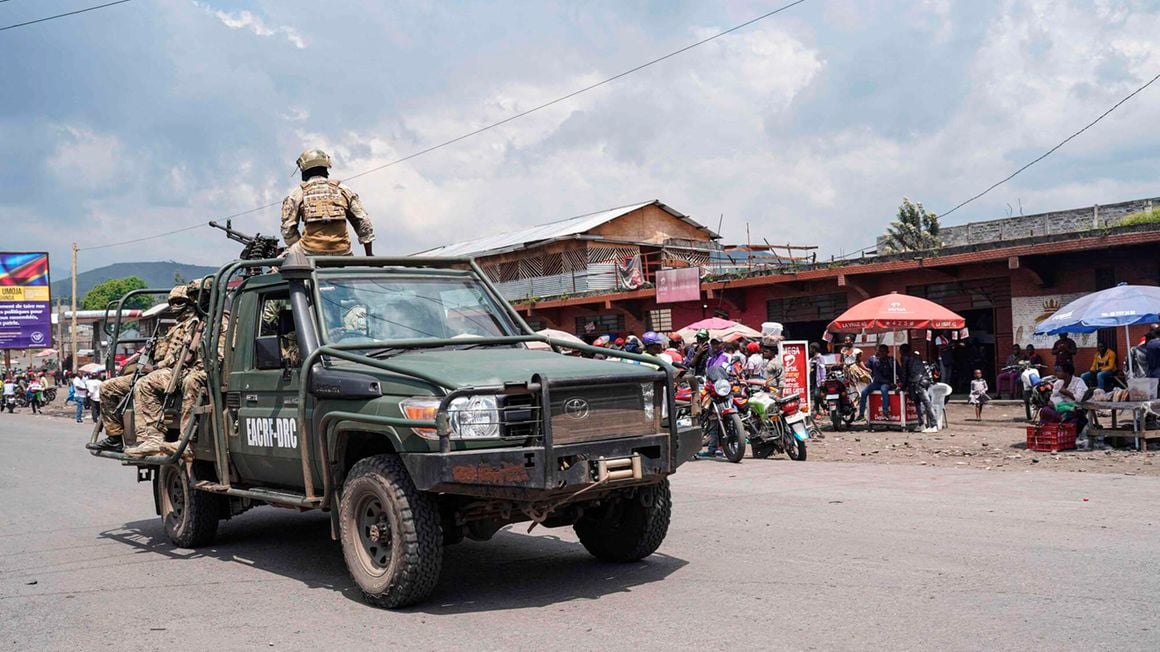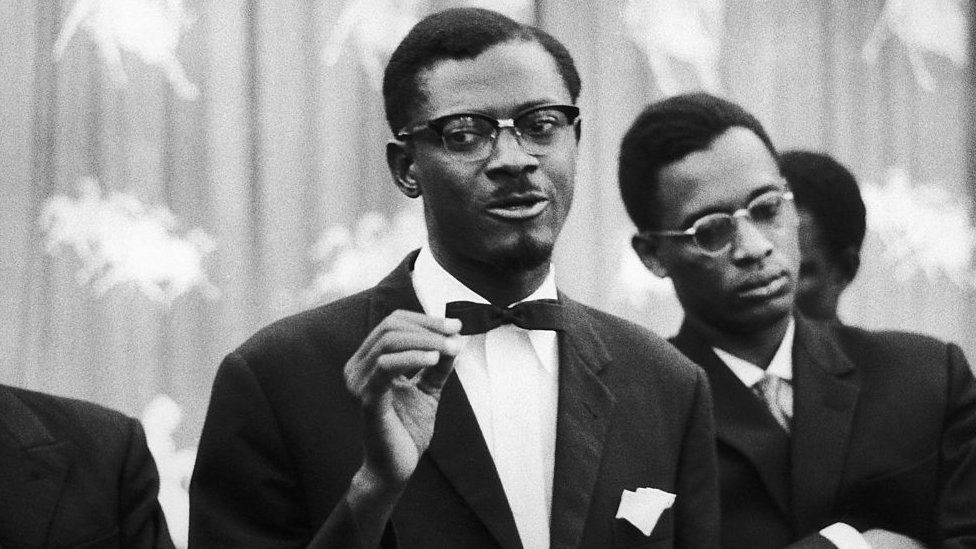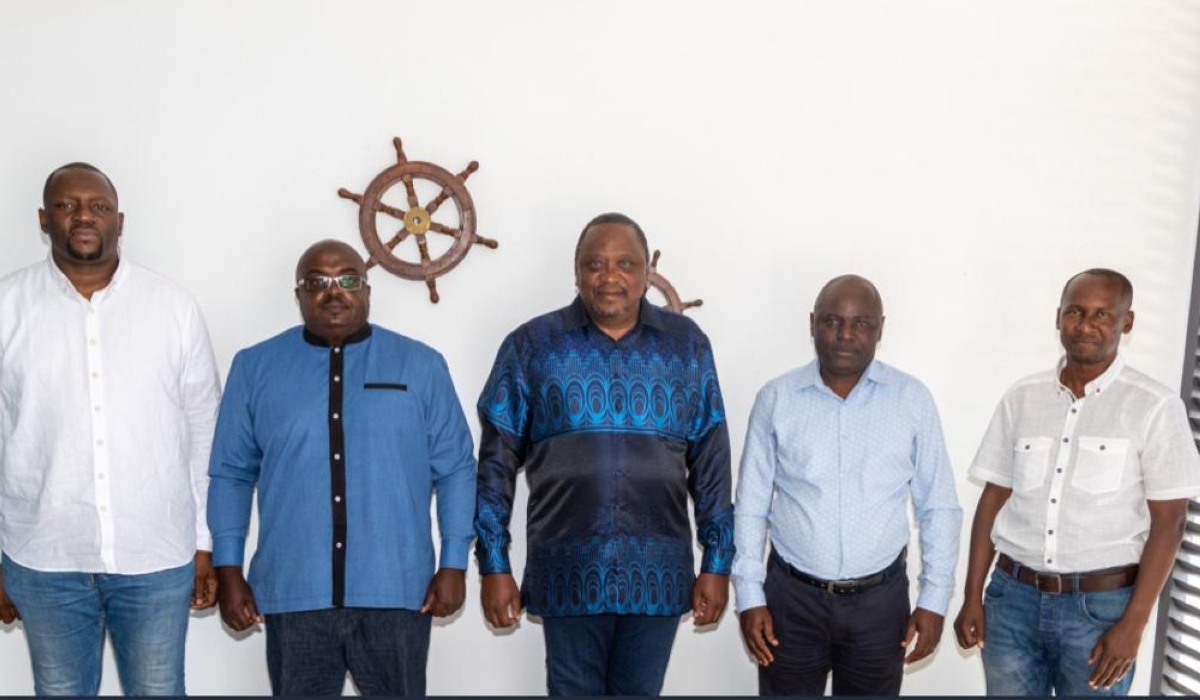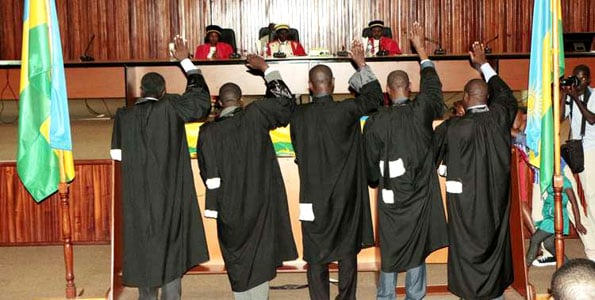Regional
Kinshasa preparing for war instead of backing peace effort

The
Luanda roadmap and Nairobi peace process are regional initiatives aimed at
finding a lasting solution to the insecurity in the east of the Democratic
Republic of Congo.
They
underlined the importance of immediate cessation of hostilities, creation of
ideal conditions for dialogue and political consultation with a view to
resolving the security crisis in the country’s eastern region, among others.
Sadly,
months have elapsed but the Kinshasa has continuously sabotaged or abandoned
these agreements, choosing to perpetuate conflict and insecurity in the region.
Among
the key decisions of the November 2022 Luanda mini-summit was the prevention of
violations of territorial integrity and normalizing political and diplomatic
relations between Rwanda and DRC, a pact Kinshasa is breaking.
On
January 24, Rwandans saw a third fighter jet from the DRC violating Rwanda's
airspace. On November 7, and December 28, 2022, the same incident had occurred.
There is ample documented evidence of Kinshasa’s continued aggression, and
refusal to commit to searching for peace. The jet incursions are among other
provocations following the cross-border shelling of Rwandan territory with
a multiple rocket launcher system on March 19, May 23, and June 10, 2022.
Prior
to the latest fighter jet incursion, the North Kivu Governor, Lt Gen Constant
Ndima Kongba, while addressing a local media outlet, said that they need to be
prepared for war against Rwanda.
Congolese
leaders persistently accuse Rwanda of supporting the M23 rebels, and of being
responsible for the insecurity in the east of their country. Kigali has denied
these “baseless allegations” and constantly urged Congolese authorities to
address their own internal crisis. The M23 rebellion is an internal Congolese
political affair that should be dealt with by Kinshasa, Kigali emphasized,
because the rebels are Congolese citizens who are being denied their rights,
and persecuted.
He
further alleged that the withdrawal of the M23, from Kibumba and Rumangabo was
only a façade. Ndima and others like him
accused the East African Community Regional Force (EACRF) of only advertising the
withdrawal for outdoor consumption.
This
was preceded by staged demonstrations against the EAC Regional Force, in Goma
and other parts of the country, on January 18, where demonstrators called for
the EACRF to attack the M23 rebels, or leave the country.
Since
December 2022, the rebels have withdrawn from their occupied territories. This
was verified by the EACRF that immediately took over these positions. This was
acknowledged by the EAC appointed facilitator, former Kenyan President Uhuru
Kenyatta, EAC regional force commanders, and the ICGLR verification mechanism.
This
shows that the demonstrations and accusations are all part of DRC’s plan to exit
the Nairobi and Luanda peace processes, which would cause the departure of the
force and effectively end the continued and full deployment of the regional
force, as agreed upon.
Kinshasa
wants the regional force out of the way so that it can start a war. The DRC’s
security crisis dates back to close to three decades. For a country that has
had many drawbacks, one would think that bringing security and peace would be the
leadership's priority.
Kinshasa
is effectively escalating tensions.
Engaging
in the Nairobi and Luanda peace processes, it turns out, was actually a strategy
to buy Kinshasa enough time to buy weapons, recruit foreign mercenaries – Russia’s
Wagner Group and ex-French Legionnaires are already in the country’s restive
east – and forge a coalition of the Congolese army, Rwanda’s genocidaires, FDLR,
and other militias, to fight the M23 rebels.
All this
is clear indication that DRC is preparing for war, not peace. Kinshasa’s violations
of the regional peace effort are a threat to security, trade, commerce and
development.
Worse
still, without any justification or cause for the war, Kinshasa will certainly
lose. For decades, dysfunctional governments in Kinshasa have been driven by
fear and greed to commit disastrous blunders.
The
biggest blunder was to, nearly three decades ago, welcome and give safe haven
to the perpetrators of the genocide against the Tutsi in Rwanda. The Rwandan
genocidal militia forces, now called FDLR-FOCA, continue wreaking havoc in the
country, with impunity.
Human
Rights Watch reported, in October 2022, that the Congolese army with a coalition
of Congolese militia as well as the FDLR fight against the M23 rebels.
While the M23 rebels are Congolese citizens fighting for their rights, the
génocidaires' sole agenda is driven by a genocide ideology and, Rwandophones,
especially the Tutsi in Rwanda and DRC, are targeted.
Human
Rights Watch received credible information that Congolese army members provided
more than a dozen boxes of ammunition to FDLR fighters in Kazaroho, one of
their strongholds in the Virunga National Park, on July 21, 2022. Two months
earlier, dozens of FDLR and local militia fighters took part in a large
counteroffensive with government soldiers in the area around Rumangabo and
Rugari.
One
FDLR fighter told Human Rights Watch that he witnessed four transfers of
ammunition. “It’s the government [troops] that would always provide us with
ammunition,” he said. “They also gave us uniforms and boots.”
The
Congolese government and army decided to form an evil alliance with a genocidal
force.
Evil
never wins.







